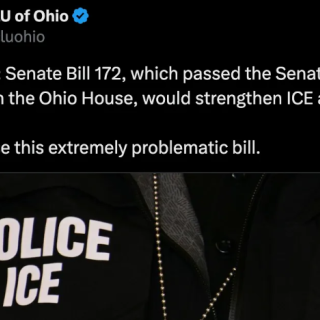Advertisement
Former Columbus City Council candidate and longtime critic of the city’s tax abatement policies declared a victory for the tens of thousands of people in Columbus who have been fed up with being burdened with paying higher property taxes due to the never-ending corporate welfare that is given out to nearly every local luxury real estate developer, big business, and large corporations in Columbus. After Mr. Motil’s objection at a City Council Public Hearing on July 8,2021 to the expansion of the AC Humko Community Reinvestment Area (CRA), City Council Housing Committee Chairwoman Shayla Favor also expressed her concerns on the expansion. The ordinance to modify the AC Humko expansion was tabled at the July 12, 2021 City Council meeting and then tabled indefinitely at last nights Columbus City Council meeting.
The AC Humko CRA expansion would have included 1,537 parcels which covers nearly all of the Harrison West neighborhood and a portion of the Victorian Village neighborhood west of Neil Avenue from West Fifth Avenue to Goodale Blvd. Motil says, “ This was the most egregious and abusive proposal of a CRA ever to be presented by Mayor Ginther’s Development Department. 1,537 parcels would have been eligible for 15-year 100% property tax abatements for remodeling, additions, and new construction if they fell under the criteria spelled out in the CRA’s documents. There was absolutely no reason whatsoever to consider expanding these boundaries in one of the most affluent, desirable, and risk-free development areas of Columbus. The AC Humko CRA is one of several so-called Market Ready CRA’s which includes Fifth by Northwest, the Short North, The Quarry and Grandview Crossing. They are all in risk-free developments areas and they all need to be repealed.”
Motil says, “After testifying as many as 30-40 times over the last 6 years against the city’s tax incentive policies, it is my hope that City Council is finally recognizing the adverse effect that tax abatements are having on the social and economic well-being of individuals and families. Especially our underserved communities, those on fixed incomes, and those of low-moderate incomes. City Council and the Mayor’s sacrificing of property tax revenues (which make up only 6% of the city budget) for city income tax revenues (makes up about 80% of the city budget) is a perfect example of robbing Peter to pay Paul.” Motil further states, “The rich who have been profiting at the expense of the taxpayers need to pay their fair share of property taxes just like everyone else. And they sure as hell can afford to do so.”



